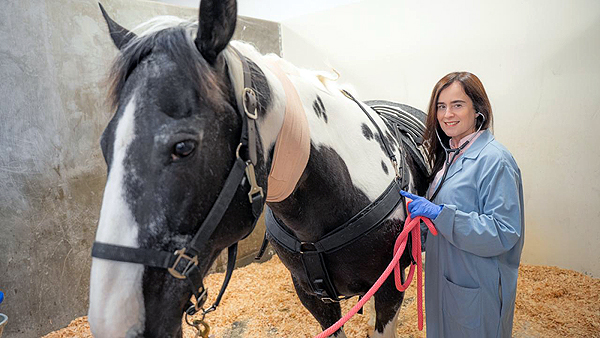
New Equine Surgeons at UC Davis
From UC Davis: The UC Davis veterinary hospital recently added two experienced equine surgeons as clinical professors. Dr. Sandra Valdez completed her residency at UC Davis in 2005 and is board certified by the American College of Veterinary Surgeons and the American Board of Veterinary Practitioners. Read the full news release on Dr. Valdez: […]
Link Between Dental Disease and Gastric Ulcers in Horses Studied
March 28, 2025 Comments Off on Link Between Dental Disease and Gastric Ulcers in Horses Studied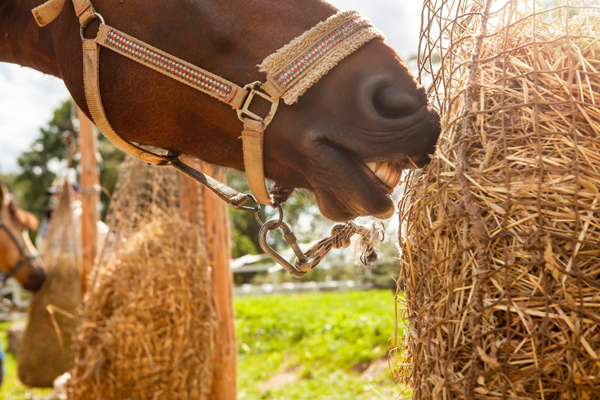
By Kentucky Equine Research Staff: Researchers hypothesized that poor dentition contributes to equine gastric ulcer syndrome (EGUS) due to reduced saliva production secondary to decreased chewing. Although one small study did not find a statistically significant association between dental disorders and EGUS, a comprehensive oral exam is still warranted when ulcers are suspected.* “We know that chewing stimulates […]
Continue reading …
Click here to read the complete article 210 – March/April, 2025 By William Given Fecal Water Syndrome (FWS) appears to be much more prevalent today than what it was just ten years ago. Although some horses seem to have cast iron stomachs, other horses are much more susceptible to many different digestive problems. For many […]
Continue reading …More than ‘Four on the Floor’ Course with Equine Guelph Horse Trailer Safety
March 12, 2025 Comments Off on More than ‘Four on the Floor’ Course with Equine Guelph Horse Trailer Safety
By Jackie Bellamy-Zions, Equine Guelph: Everyone wants stability and control when setting off on an adventure with their four-legged friends. Your season of safe journeys begins with many crucial safety checks. Equine Guelph is excited to announce the next online offering of Horse Trailer Safety, to help you check all the important horse boxes. Join expert instructor […]
Continue reading …Researchers Test Herbs for Deworming Effectiveness in Horses
March 10, 2025 Comments Off on Researchers Test Herbs for Deworming Effectiveness in Horses
From Kentucky Equine Research: Largely due to inappropriate use of chemical dewormers, known also as anthelmintics, the equine industry is now faced with widespread parasite resistance. Lulled by the idea of “natural” or “environmentally friendly” treatment options, some owners are now using plant additives to deworm their horses. Little science supports these products as effective dewormers, […]
Continue reading …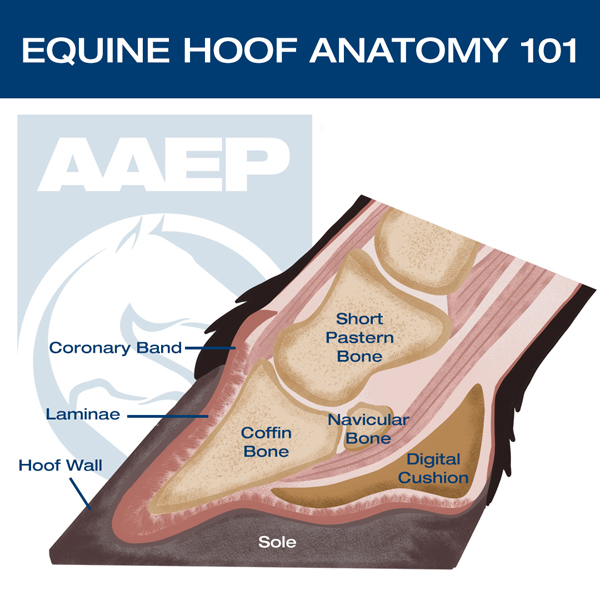
By Brian S. Burks, DVM, Diplomate, ABVP, Board-Certified Equine Specialist Fox Run Equine Center The hoof is a modified skin (epidermis) covering the third phalanx and all enclosed structures. It provides protection to the distal limb, formed by keratinization of the epithelial layer and modification of the underlying dermis. The thickened, cornified keratin of the […]
Continue reading …Equine Guelph and the Equine Disease Communication Center Announce the New Biosecurity Risk Calculator 2.0
February 21, 2025 Comments Off on Equine Guelph and the Equine Disease Communication Center Announce the New Biosecurity Risk Calculator 2.0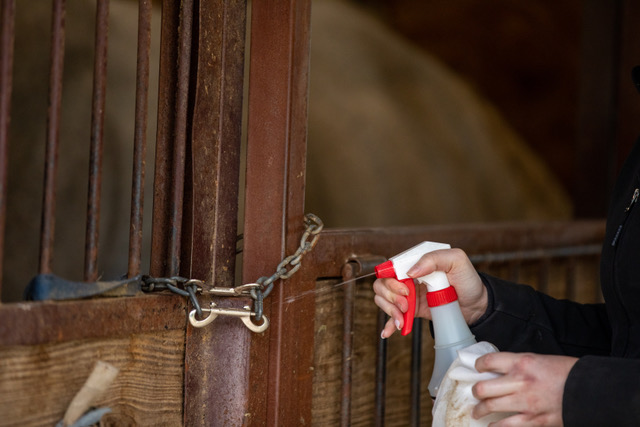
A new, innovative online healthcare tool to help horse owners better manage and understand biosecurity risks is now available through a partnership between Equine Guelph and the Equine Disease Communication Center. From Equine Guelph and EDCC: A new, innovative online healthcare tool to help horse owners better manage and understand biosecurity risks is now available […]
Continue reading …Appaloosa Youth Association Springtime Equine Care Seminar
February 19, 2025 Comments Off on Appaloosa Youth Association Springtime Equine Care Seminar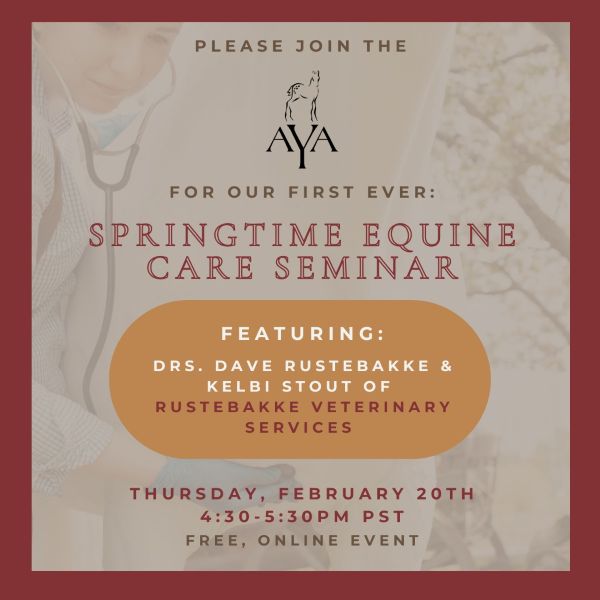
By Hannah Forrester, Appaloosa Youth Association Board of Directors: This Thursday, February 20th, the Appaloosa Youth Association invites you to join their Springtime Equine Care Seminar from 4:30-5:30pm PST. The seminar will feature two vets: Dr. Dave Rustebakke and Dr. Kelbi Stout from Rustebakke Veterinary Service, who will be speaking about how to best […]
Continue reading …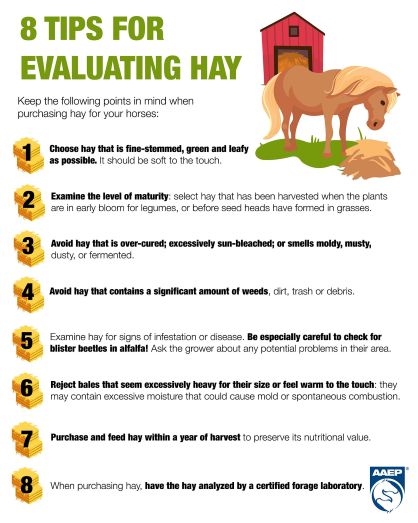
From AAEP: As the source of 50 to 90% of a healthy horse’s nutritional needs, hay warrants careful consideration as a precious commodity. This becomes especially true during the winter, when roughage in the diet is the main source of heat for the horse. Generally, horses at rest in ambient temperatures of 70°F consume 2% […]
Continue reading …Mediterranean Donkey Milk Production
January 29, 2025 Comments Off on Mediterranean Donkey Milk Production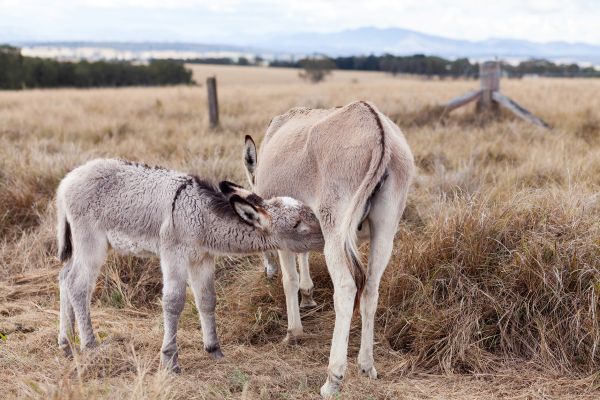
From Equine Science Update: Donkey milk has been prized since ancient times for its cosmetic and nutritional benefits. According to legend, Cleopatra, famed for her beauty, bathed in donkey milk to maintain her radiant complexion. It is said that she kept a herd of 700 donkeys to ensure a steady supply of milk for her […]
Continue reading …







